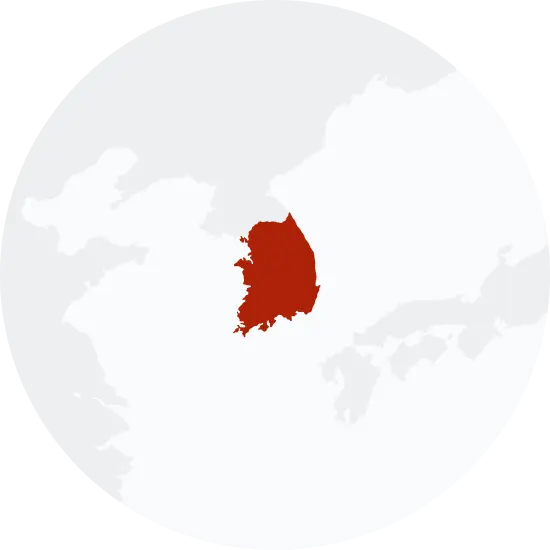Explore the Family Name Im
How common is the last name Im in the United States?
Based on the Decennial U.S. Census data, the popularity of the surname "Im" has seen a significant increase from 2000 to 2010. In 2000, the surname ranked 8007 in terms of popularity, and by 2010, it had climbed to 6880 - an increase of 14.08%. Additionally, the number of people with this surname rose from 3823 to 4887 during the same period, reflecting a growth of 27.83%. The proportion of individuals named "Im" per 100,000 people also increased by 16.9%.
| 2000 | 2010 | Change | |
|---|---|---|---|
| Rank | #8,007 | #6,880 | 14.08% |
| Count | 3,823 | 4,887 | 27.83% |
| Proportion per 100k | 1.42 | 1.66 | 16.9% |
Race and Ethnicity of people with the last name Im
In terms of ethnicity, the Decennial U.S. Census data indicates that the majority of people with the surname "Im" identify as Asian/Pacific Islander, accounting for 94.90% in 2010, up from 93.88% in 2000. Those identifying as two or more races decreased from 3.32% to 1.80%, and those identifying as White also saw a slight decrease from 2.41% to 2.13%. Interestingly, there was significant growth among those identifying as Hispanic from 0.18% to 0.88%. No data was found relating to people with this surname identifying as Black or American Indian and Alaskan Native for both years.
| 2000 | 2010 | Change | |
|---|---|---|---|
| Asian/Pacific Islander | 93.88% | 94.9% | 1.09% |
| White | 2.41% | 2.13% | -11.62% |
| Two or More Races | 3.32% | 1.8% | -45.78% |
| Hispanic | 0.18% | 0.88% | 388.89% |
| Black | 0% | 0% | 0% |
| American Indian and Alaskan Native | 0% | 0% | 0% |
Im ancestry composition
23andMe computes an ancestry breakdown for each customer. People may have ancestry from just one population or they may have ancestry from several populations. The most commonly-observed ancestry found in people with the surname Im is Korean, which comprises 69.8% of all ancestry found in people with the surname. The next two most common ancestries are Indonesian, Thai, Khmer & Myanma (12.1%) and Chinese (6.3%). Additional ancestries include Vietnamese, French & German, British & Irish, Eastern European, and Japanese.
Ready to learn more about your ancestry? Get the most comprehensive ancestry breakdown on the market by taking our DNA test. Shop 23andMe
| ANCESTRY BREAKDOWN | COMPOSITION |
|---|---|
| Korean | 69.8% |
| Indonesian, Thai, Khmer & Myanma | 12.1% |
| Chinese | 6.3% |
| Other | 11.8% |

Possible origins of the surname Im
Your DNA provides clues about where your recent ancestors may have lived. Having many distant relatives in the same location suggests that you may all share common ancestry there. Locations with many distant relatives can also be places where people have migrated recently, such as large cities. If a large number of individuals who share your surname have distant relatives in a specific area, it could indicate a connection between your surname and that location, stemming from either recent ancestral ties or migration.
Based on 23andMe data, people with last name Im have recent ancestry locations spanning a few countries, mostly in South Korea, and Cambodia.
| RECENT ANCESTRY Location | Percentage |
|---|---|
| Seoul, South Korea | 68.40% |
| Busan, South Korea | 37.90% |
| Gyeongsangnam Do, South Korea | 36.80% |
| Jeollabuk Do, South Korea | 29.50% |
| Daegu, South Korea | 25.30% |
What Im haplogroups can tell you
Haplogroups are genetic population groups that share a common ancestor on either your paternal or maternal line. These paternal and maternal haplogroups shed light on your genetic ancestry and help tell the story of your family.
The top paternal haplogroup of people with the surname Im is O-F1204, which is predominantly found among people with East Asian & Indigenous American ancestry. Haplogroup O-F1204 is descended from haplogroup O-M1359. Other common haplogroups include O-F46 and C-M217, which are predominantly found among people with East Asian & Indigenous American and East Asian & Indigenous American ancestry. Other surnames with similar common haplogroups are: Cha, Han, Son, Yi, Sato, Jin, Chung, Koh, Hua, Suh.
The most common maternal haplogroups of people with Im surname are: M, D5a_b, D4. These most commonly trace back to individuals of East Asian & Indigenous American and European ancestry.
 Paternal Haplogroup Origins O-M1359
Paternal Haplogroup Origins O-M1359
Your paternal lineage may be linked to the Yayoi
Haplogroup O1b2a, a branch of haplogroup O, is closely related to several haplogroups that are commonly found in Japan. Haplogroup O is closely associated with Kyushu, Japan's third largest island, and makes up over half of all men in Japan. Although haplogroup O is prevalent in Japan, it likely only entered Japan during the Yayoi expansion about 2,300 years ago. During the Yayoi expansion, people entering from the Korean Peninsula brought wet rice agriculture, weaving technology, and metalworking technology to Japan. The Yayoi expansion began on the island of Kyushu, where haplogroup O is very common today. It is possible that some of the early members of O1-F3356 were involved in this major shift, which quickly and dramatically altered Japanese culture.
Your maternal lineage may be linked to the Han
Members of haplogroup D are found in both northern and southern Han Chinese populations at low to moderate frequencies. The Han people, who all share the same language and similar cultural practices, are the largest ethnic group in the world, with about 1.2 billion people. Historical evidence shows that Han people are descendants of the ancient Huaxia tribes that come from northern China, and Han language and culture only expanded into southern China in the last 2,000 years. The spread of Han people and culture from northern to southern China was likely driven by warfare and famine in the north.

What do people with the surname Im have in common?
Spoiler alert: it's complicated. People with the same last name are usually no more genetically similar than a randomly sampled group of people from the same population. That said, people with the same surname are more likely to have similar ancestries than randomly sampled individuals. The reason is the tendency of people with similar cultural or geographical backgrounds to preferentially mate with one another. That's why people who share a surname may be more likely to share traits and tendencies in common than people within the general population. Check out the percentages below to see the prevalences of tastes, habits, and traits of people with your surname compared with prevalences among 23andMe users.
Preferences
Traits

Cheek Dimples
Small indentations that appear on the cheeks when a person smiles.
"Im" Surname 47.1%
23andMe Users 37.6%
Habits

Sugary Drink
Drinks one or more sugary drinks per day.
"Im" Surname 26.1%
23andMe Users 21.1%
Wellness
Are health conditions linked to the last name Im?
The short answer is that, if there is an association between surname and health, it's usually more about your ancestry than your name. Individuals with a given surname are no more genetically similar than the general population but often have similar ancestries. The populations of people associated with those shared ancestries often have sets of genetic variations, also known as alleles, in common. Some of those alleles are associated with a greater likelihood of developing certain diseases.
Disease variant frequency by ancestry
Disease allele frequencies in populations associated with the surname Im are shown below. Important Note: not everyone with a disease allele will develop these health condition




